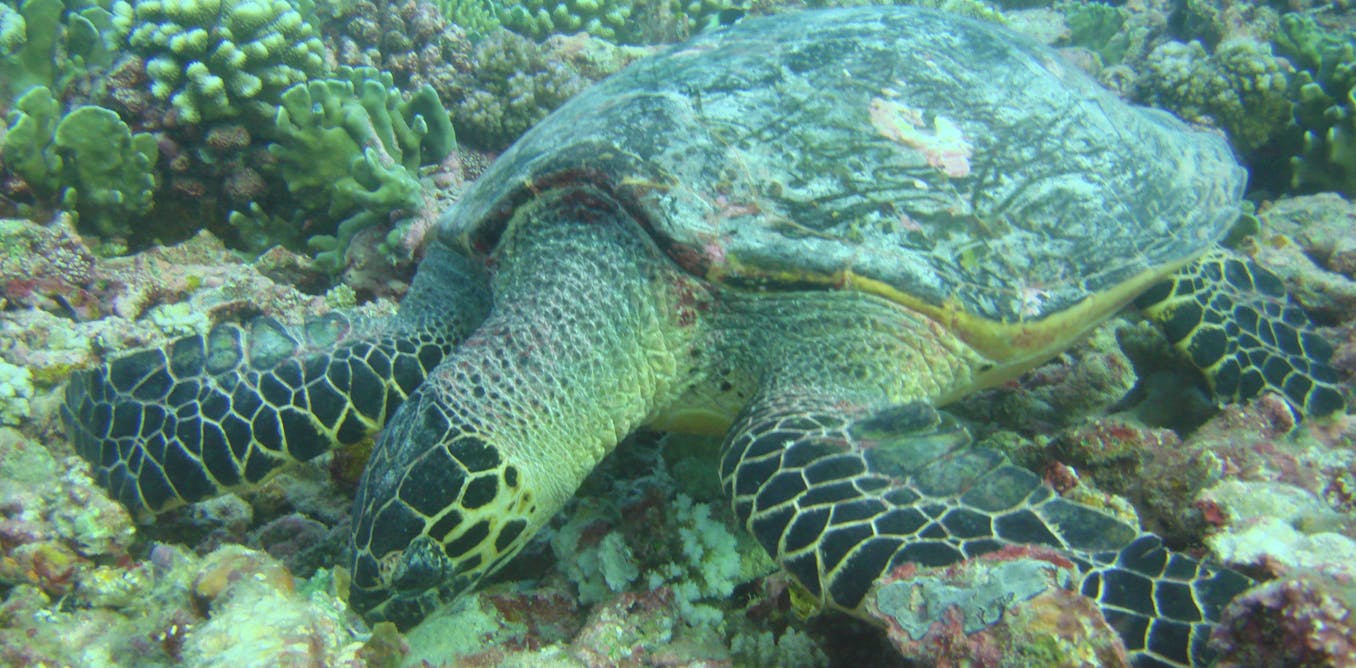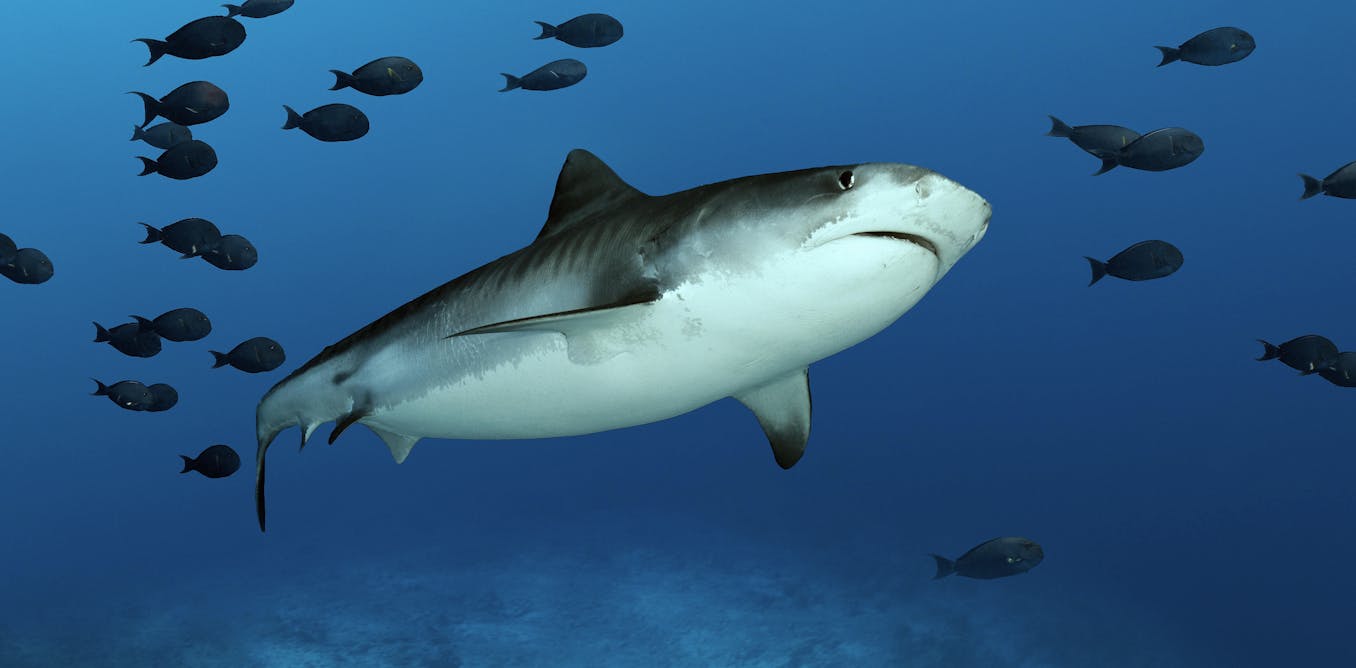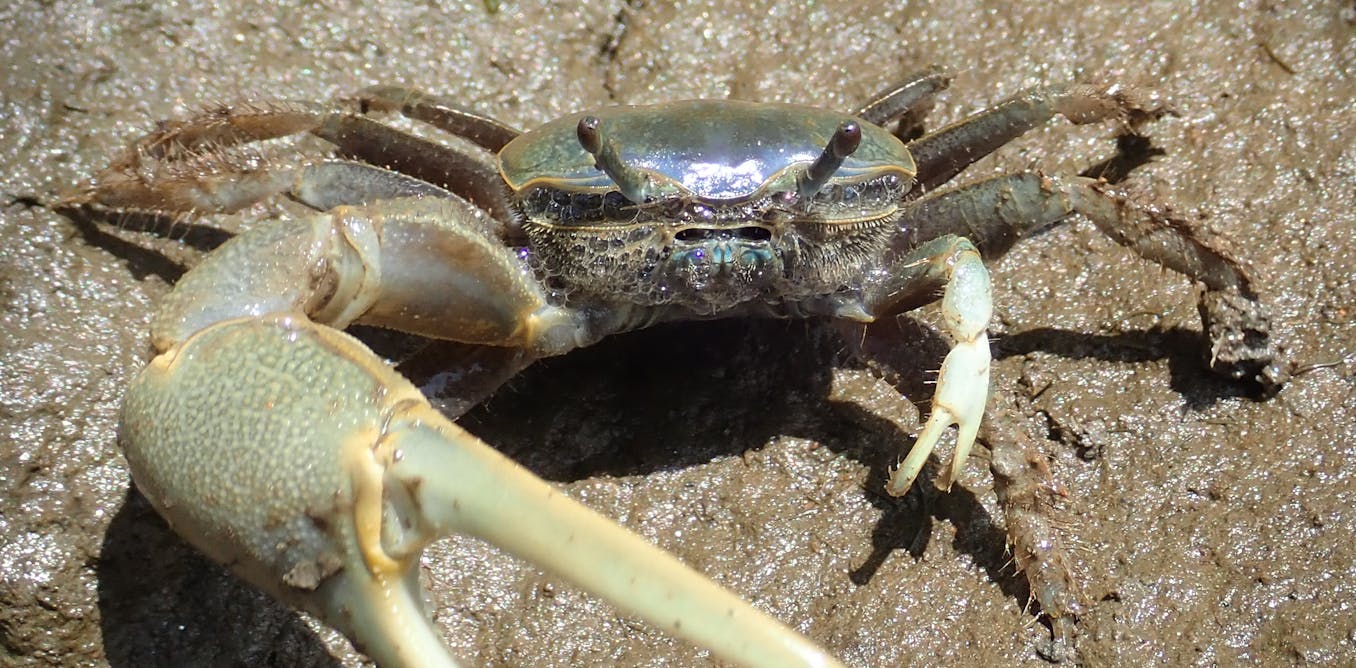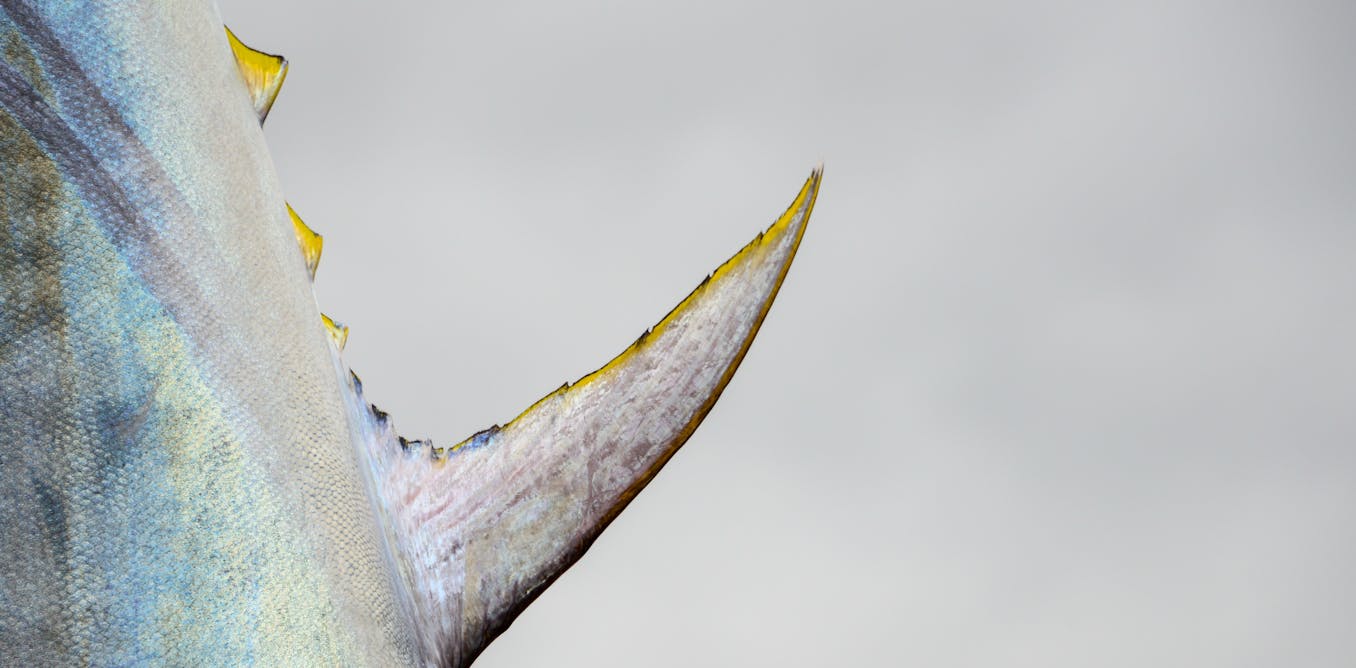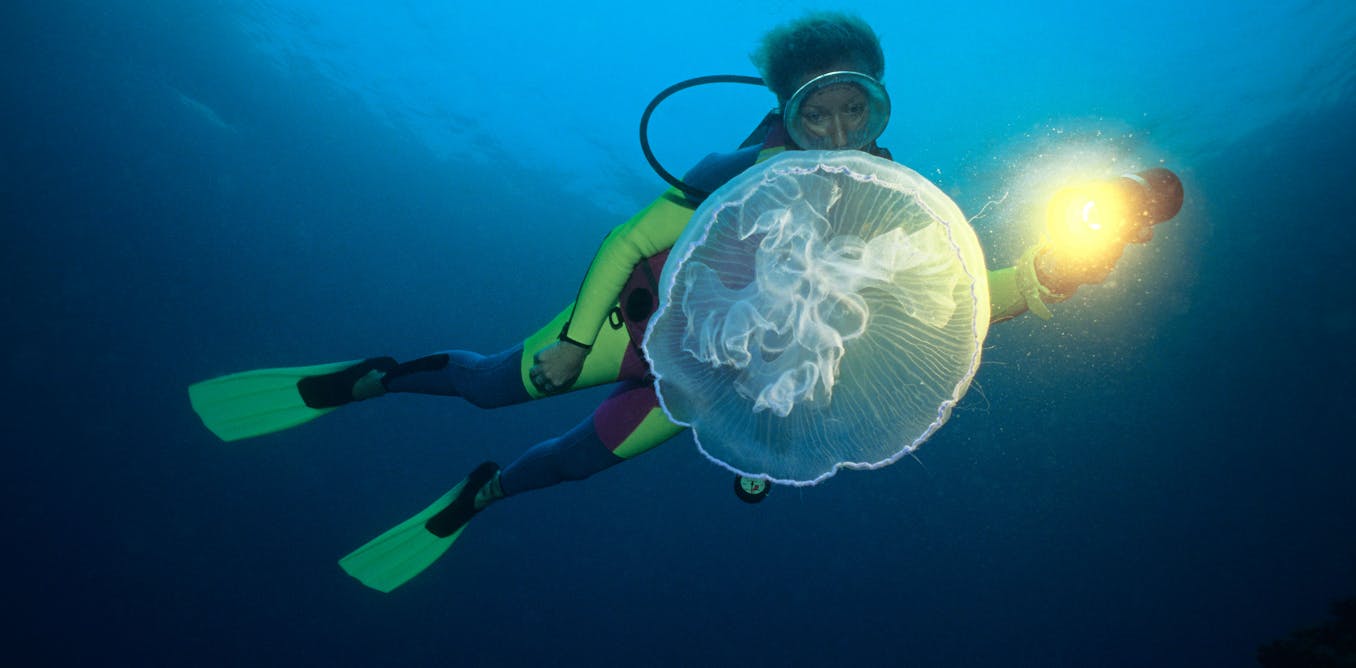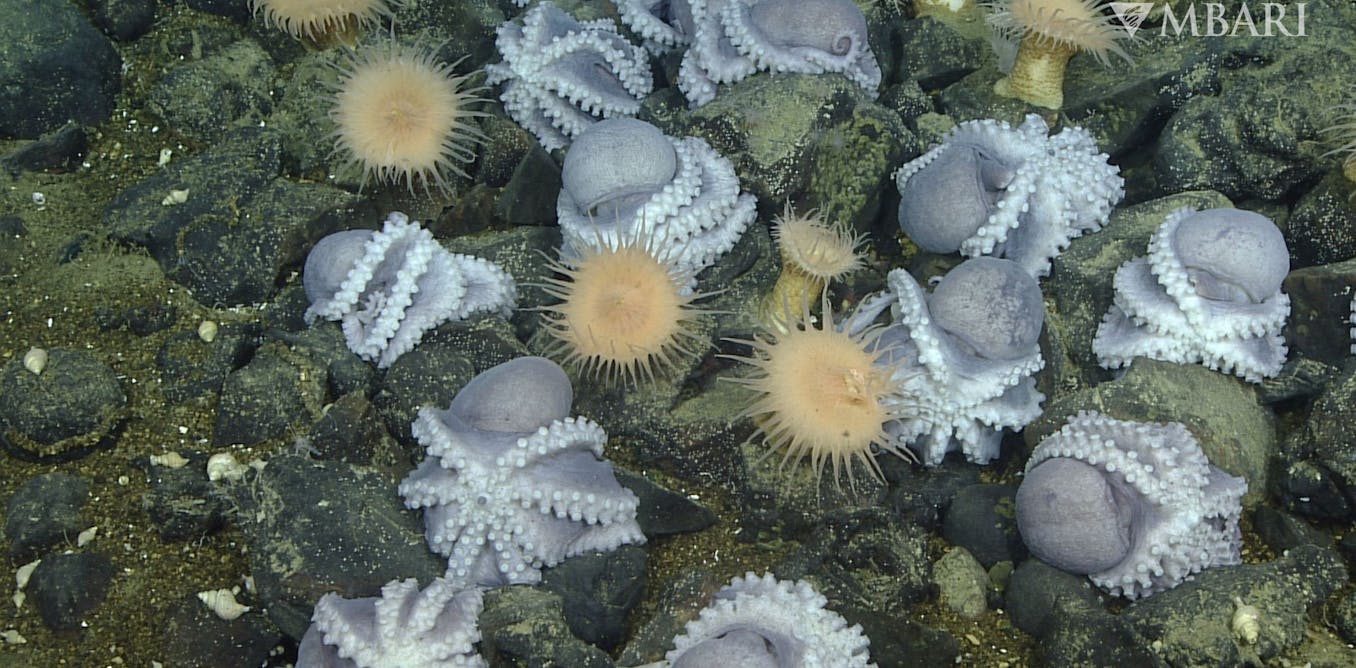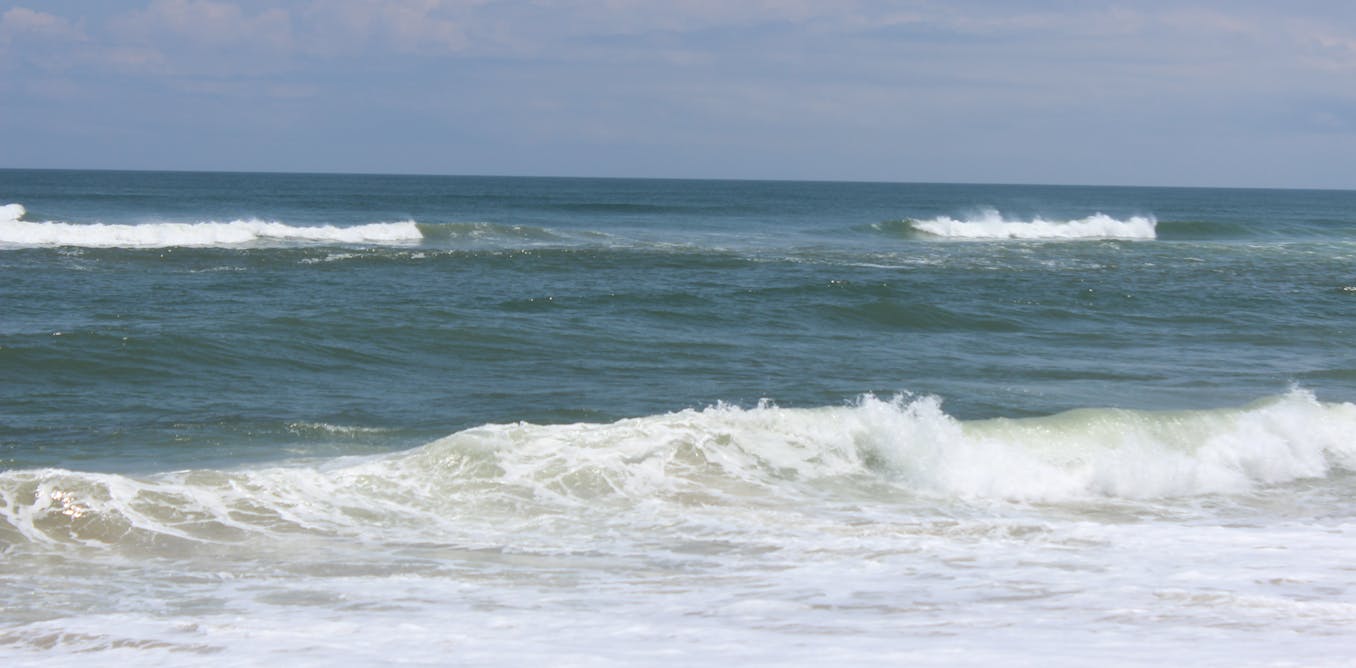To protect endangered sharks and rays, scientists are mapping these species' most important locations
A new initiative is pinpointing areas in the world’s oceans that are key habitats for sharks and their relatives, so that governments can consider protecting these areas.
Jan. 11, 2024 • ~8 min
How a thumb-sized climate migrant with a giant crab claw is disrupting the Northeast's Great Marsh ecosystem
South of Cape Cod, fiddler crabs and marsh grass have long had a mutually beneficial relationship. It’s a different story in the North, where the harms can ricochet through ecosystems.
Dec. 5, 2023 • ~9 min
Stones inside fish ears mark time like tree rings – and now they're helping us learn about climate change
My team studied bluefin tuna otoliths to learn why some populations are recovering faster than others.
Nov. 27, 2023 • ~7 min
PFAS 'forever chemicals' are getting into ocean ecosystems, where dolphins, fish and manatees dine – we traced their origins
Scientists found PFAS hot spots in Miami’s Biscayne Bay where the chemicals are entering coastal waters and reaching the ocean. Water samples point to some specific sources.
Nov. 14, 2023 • ~7 min
How PFAS 'forever chemicals' are getting into Miami's Biscayne Bay, where dolphins, fish and manatees dine
Scientists discovered PFAS hot spots in the bay and found PFAS in water along the Atlantic coast. In a new study, they traced the chemicals’ origins to help stop the harm.
Nov. 14, 2023 • ~7 min
Five jellyfish species you may encounter more often in UK's warming seas
UK is home to a diverse range of jellyfish species – encounters with them may become more frequent as the ocean warms.
Sept. 25, 2023 • ~6 min
Secrets of the Octopus Garden: Moms nest at thermal springs to give their young the best chance for survival
Thousands of pearl octopuses were discovered in 2018 lining thermal vents near a deep-sea volcano. Researchers now know why octopus moms gather there.
Aug. 23, 2023 • ~10 min
Secrets of an octopus's garden: Moms nest at thermal springs to give their young the best chance for survival
Thousands of pearl octopuses were discovered in 2018 lining thermal vents near a deep-sea volcano. Researchers now know why octopus moms gather there.
Aug. 23, 2023 • ~9 min
Rip currents are dangerous for swimmers but also ecologically important – here's how scientists are working to understand these 'rivers of the sea'
Rip currents are a leading cause of near-shore drownings, but there are effective ways to survive one. And these phenomena also play important ecological roles that are an emerging research area.
July 21, 2023 • ~8 min
/
5

